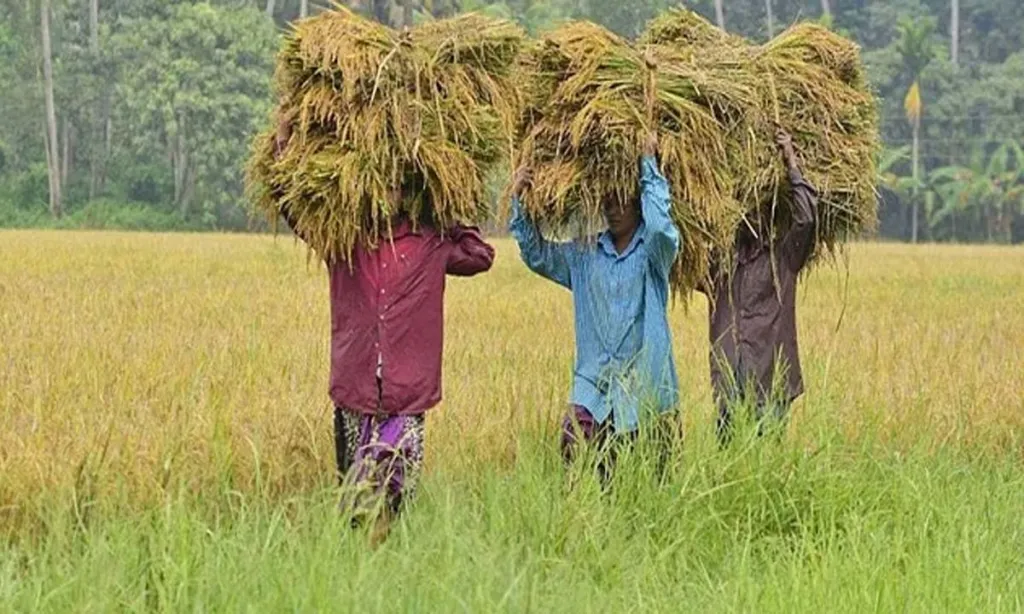Alappuzha: The agriculture sector in Kuttanad, the rice bowl of Kerala, is experiencing a generational change. After two decades of continuous use, the paddy variety Uma (MO 16) is making way for Pournami (MO 23), developed by the Regional Rice Station (RRS) of Kerala Agricultural University, Mankombu. The seed is gaining popularity and many paddy seed planters in the region now use Pournami, which has a shorter maturity period and weighs more than other varieties. Last season around 1,500-2,000 farmers from Kuttanad shifted to Pournami. This variety is being cultivated in about 2,500-3,000 acres this Pancha season. Researchers led by Leena Kumari S, former director of RRS, developed this variety in the period 2017-18. “Continued research over 10 years helped in developing the new variety, which can withstand the vagaries of nature and climate change,” said RRS chief M Surendran, who was part of the research team. “Purnami is heavier than Uma and other seed varieties. Uma has been in use in Kuttanad for the last two decades. Its 1,000 seeds weigh about 25-26 grams, while the same quantity of Pournami seeds weighs 28 grams, Surendran said. ‘Purnami variety can withstand frequent changes in climate’ “The average production from one acre of land under Purnami is around 3,000- 3,200 kg. Uma produces a weight of about 3,000 kg. Surendran said, Pournami has a short maturity period of 115-120 days. “Climate change has severely affected the agriculture sector in the state. Unexpected rains and hot weather have affected paddy cultivation. Pournami variety can tolerate frequent changes in climate. Pests such as gall midge and brown plant hoppers, and diseases such as sheath blight and sheath rot are some of farmers’ worst fears. Surendran said, the full moon can limit these dangers to some extent. “Many paddy farmers and Padashekhara committees (groups of farmers) have started cultivating the new variety and it will completely replace Uma in three or four years,” he said. According to RRS researchers, although many farmers have shown interest in the new seed, its shortage is a problem. He said it would take four-six seasons to obtain sufficient quantities of seeds. Pournami is a hybrid of NHTA 8 and RRS Aruna 8 varieties. It was developed by researchers Leena Kumari, Devika R, Surendran M, Nimmi Jose, Ambili K, Jyoti Sara Jacob and Gayatri P. Kuttanad is about 2-3 meters below sea level and salt water intrusion is a major hindrance in paddy cultivation. Moreover, climate change is proving to be another villain. Pournami can maintain such changes, researchers said. In 2021, the Center notified it as an official seed variety. Valluvankadu paddy polder under Nedumudi agriculture office had used Pournami in the last season. It was an enormous success. “Based on our experience, Beej is comparatively better than Uma. Its low use of pesticides and its ability to retain heat and salt content is an achievement,” said Bijoy Kayyatilchira, secretary of the committee.
Kerala: The paddy fields of Kuttanad are going through a generational change
